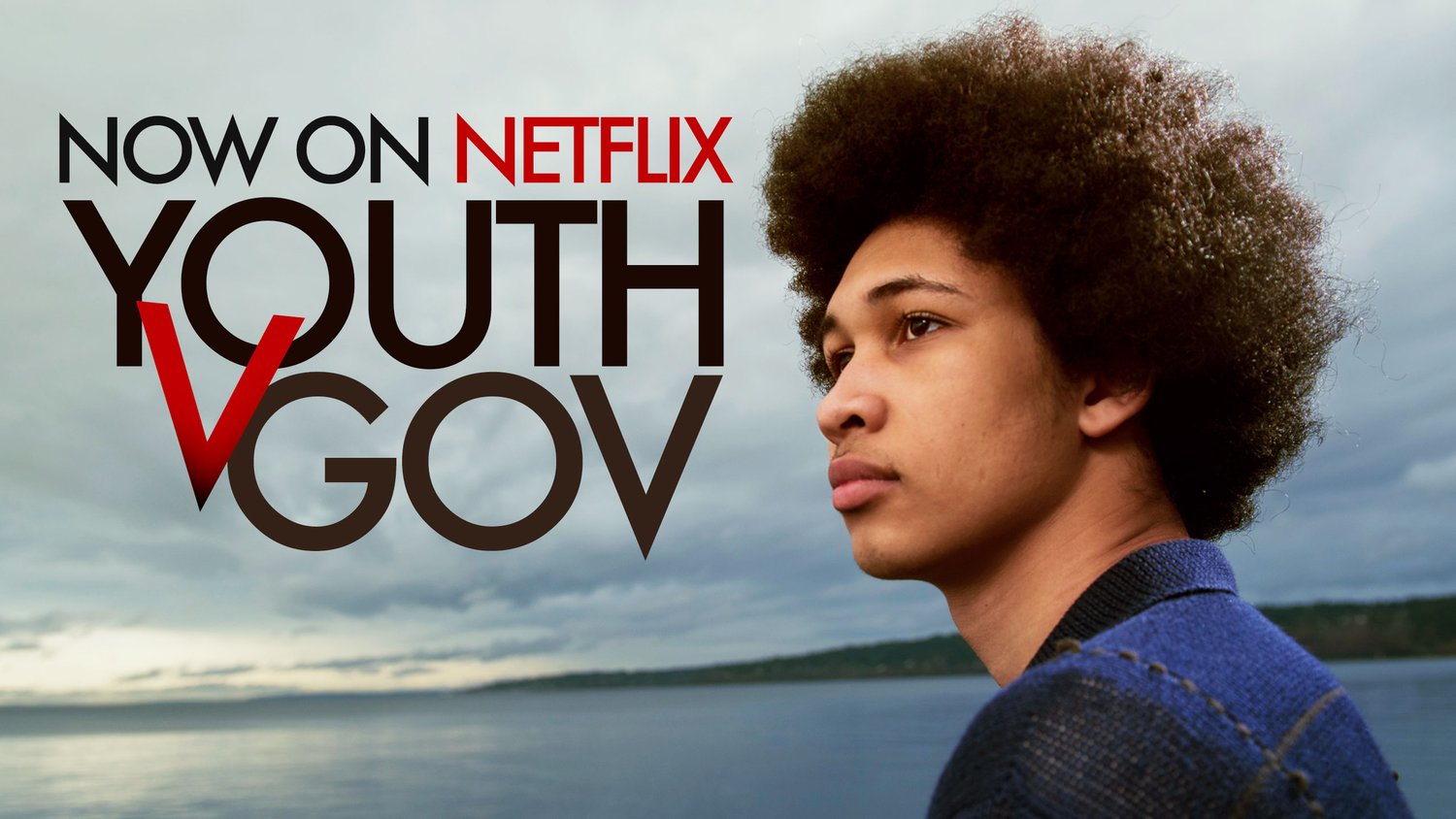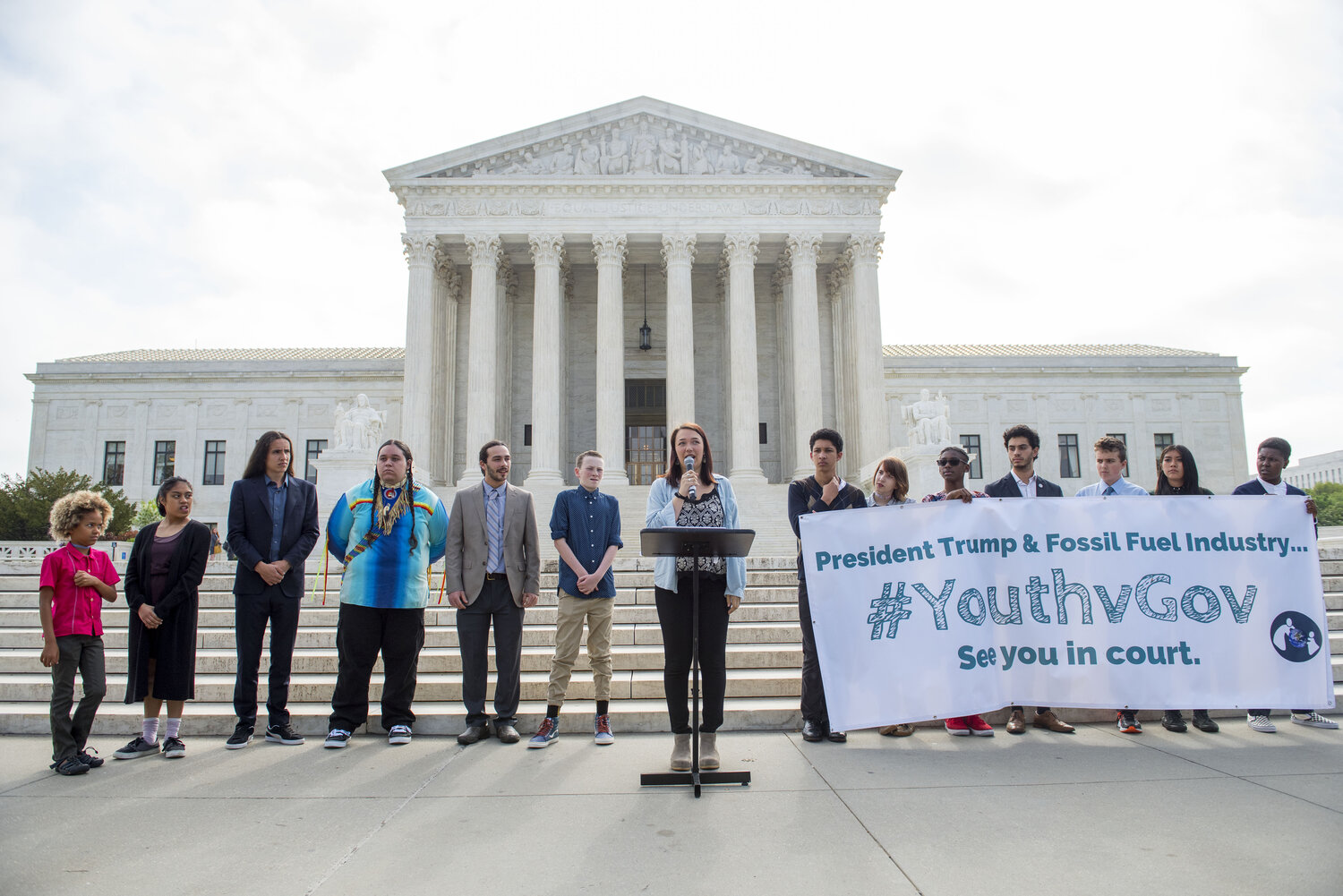Case Study
Youth v. Gov (2020)

Olivia Ahnemann (Producer), Christi Cooper (Director & Producer)
“Youth v. Gov” is a documentary film that follows twenty-one young Americans who came together to sue the United States federal government for willfully endangering their future lives by implementing harmful climate policies. Our Children’s Trust is a non-profit organization that is leading the Juliana v. US case. In fact, Juliana v. US is only one of many legal actions that Our Children’s Trust has brought against government institutions since 2011. The documentary is directed by Christi Cooper, along with producer Olivia Ahnemann. The main storyline of the film documents the legal ups and downs involved in the Juliana v. US case. However, the film also weaves in the individual stories of each plaintiff, how they are affected by climate change, and what motivates them to keep fighting for meaningful climate action. Unfortunately, the film ends on a sad note, after the Ninth Circuit Court of Appeals decides that the judicial branch of government does not have the authority to rectify the harm that the federal government’s climate policies are inflicting on young people. The plaintiffs and the lawyers at Our Children’s Trust continue to fight for victory in the Juliana v. US case.
Environmental films often have a tendency to elicit outrage or fear by concentrating on apocalyptic footage of climate disasters. However, “Youth v. Gov” uses a stylistic approach that successfully incorporates a wide range of emotional tones throughout the film. There are sections accompanied by very calm instrumental music that serve to introduce each plaintiff as a regular American kid who just wants to know that they can be safe from future climate disasters. These sections make the protagonists relatable and make viewers root for them as the underdogs in this fight against the federal government. In the section where these young people are protesting or appearing in court to fight for what they believe in, the audience’s initial reaction may be to not take them seriously, as they are just a group of kids who are standing up to one of the most powerful institutions. Yet these David vs. Goliath encounters are complemented by sections of the film where the lawyers reveal historical evidence going back to the 1950s that the US government was aware of an impending climate crisis. The film juxtaposes footage of politicians ranging from Nixon to Obama vowing to work towards promoting alternative energy sources, with footage of those same politicians working to strengthen the fossil fuel industry. It establishes that the US government implemented policies that exacerbated climate change despite clear scientific data about the dangers of doing so. The film argues that the kids have a fundamental right to demand that the government rectify the situation. The mix of mellow portrayals of the plaintiffs; a logical, unheated presentation of the case; and the judicious use of alarming footage and urgent montages of warning messages, keep viewers engaged without causing outrage burnout. That is, the filmmakers’ ability to tactfully elicit empathy, inspiration and outrage through deliberate editing strategies serve to motivate and energize viewers to take action.
The film resonates with a broad cross-section of today’s youth (its target audience) because the group of plaintiffs chosen to participate in the film represent America’s geographical, racial, cultural and gender diversity. This diversity emphasizes that the adverse effects of climate change impact everybody. Some of the plaintiffs were vulnerable to frequent hurricanes, some were victims of extreme flooding, and others lived near areas with recurring and dangerous wildfires or in areas affected by drought. For some, the drive to protect the environment stems from Native American cultural values, whereas others rely on their Christian faith to draw strength during this discouraging fight.

The film builds on existing work in the fight for climate action and is also supported by various creative and corporate partnerships. “Youth v. Gov” follows the work of Our Children’s Trust. The filmmaking team collaborated with Vulcan Productions for input on the creative aspects of the filmmaking process. The team collaborated with Interfaith Power and Light in order to create a grassroots campaign to reach young people through local communities.
“Youth v. Gov” was screened at nearly 40 film festivals within a year of its release. Through its partnership with Interfaith Power and Light, the filmmaking team planned 300 local screenings of the film. The team has also shared the film with various government officials. Lastly, the film was made available on the online streaming platform Netflix, which has over 73 million subscribers just in the US alone.
One of the main pillars of the impact campaign has been to make discussion guides available to schools so that the film’s message can be incorporated into middle school and high school civics curriculum. The filmmakers are sharing the film with law schools so that new generations of law students can study the Juliana v. US case. The extent to which these initiatives will be consequential in inspiring long-term change in the fight for climate justice will be determined over the next few years.
Up Next